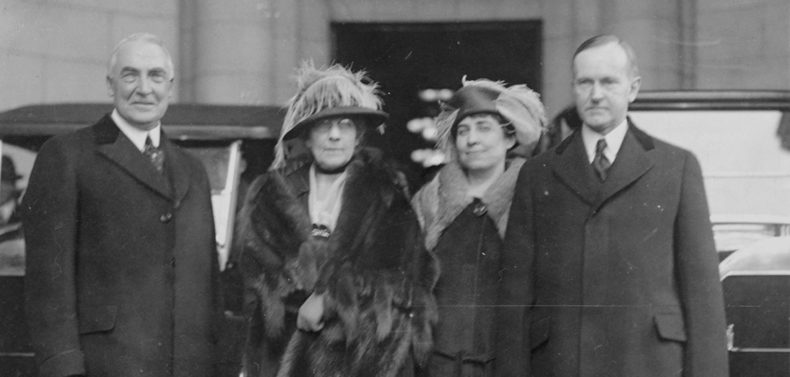Set the Wayback Machine for 1923. A century ago, America was a country hoping for “normalcy” after the ravages of World War I, postwar race riots and a “Red Scare” that predated the infamous McCarthy-era political witch hunts of the 1950s.
Across America and here in Athens, people of 1923 lived through times that are relevant to our times today. A century ago, this nation was only five years removed from the carnage of a war “over there” that claimed the lives of more than 100,000 Americans before it ended in 1918. Americans were in a mood to party, and Prohibition laws couldn’t stop them. The party ended with the Wall Street crash of 1929, but in 1923 America was on the move and optimistic. President Warren Harding’s campaign for national “normalcy” was a welcome relief from foreign and domestic tensions that had rankled this country for years.
Harding died in San Francisco in the summer of 1923, and America mourned as his funeral train chugged its way back to Washington. The taciturn and strait-laced Vice President Calvin Coolidge was at his family farm in Vermont when, in the wee hours of the morning, the news came in that the president was dead. In a scene out of a Norman Rockwell illustration, President Coolidge was given the oath of office by his father, a justice of the peace, in a simple farmhouse illuminated by kerosene lanterns in the predawn darkness. Nicknamed “Silent Cal” for his tight-lipped rectitude, Coolidge didn’t say much, but Americans took his advice to “keep cool with Coolidge.” Caustic columnist H.L. Mencken said of Coolidge, “He slept more than any other president… Nero fiddled, but Coolidge only snored.”
While Coolidge snored, Americans partied. Across the nation, people went on a buying binge for cars, radios, phonographs and the latest fashions. Here in Athens in 1923, the Michael Brothers department store on Clayton Street downtown offered men’s suits for $25. Women’s silk dresses could be purchased for $18.75, with a silk hat to match for $5 more. At the Piggly Wiggly store on College Avenue, eggs were 29 cents a dozen in early 1923.
Movies had not yet learned to talk in 1923, but audiences for the silent films of the time packed theaters. The Palace Theater in downtown Athens delighted moviegoers in 1923 with such films as The Four Horsemen of the Apocalypse with silver screen heartthrob Rudolph Valentino and Dr. Jack with funnyman Harold Lloyd, a comedy that promised “A riot of smiles. A panic of laughs!”
In the Athens of 1923, for $595 the local C.A. Trussell Motor Company could put you behind the wheel of a Ford Sedan, “equipped with electric starter and lighting system… an enclosed car of comfort, convenience and beauty.” For cheaper thrills, an advertisement in the Athens Banner-Herald in 1923 from a company in New York offered guns by mail. Ten bucks and change would get you a .32 caliber blue steel pistol billed as “a man’s gun… just like they used ‘over there.’” A headline in the same newspaper on Feb. 11, 1923 said, “South To Have Twelve Months of Prosperity” and boasted that Dixie would fare better than the rest of America in 1923.
Local headlines in 1923 reflected the white supremacy of a time when Ku Klux Klan chapters spread nationwide and lynchings were common. An Athens newspaper front page on Feb. 4, 1923 was dominated by a headline about eradicating the boll weevil that menaced cotton crops. A much smaller front page headline that day said, “Negroes Lynched in Baldwin County.”
In 1923, forces of bigotry and book banning were on the march, just as they are today. The Clean Books League pushed for censorship in 1923 while religious fundamentalists girded for battle against the scientific theory of evolution. A century later, in 2023, we have technology undreamt of in 1923, but we still fight the same old battles against injustice and superstition that were waged 100 years ago. Writer Irene Peter was right when she said, “Just because everything is different doesn’t mean anything has changed.”
Like what you just read? Support Flagpole by making a donation today. Every dollar you give helps fund our ongoing mission to provide Athens with quality, independent journalism.










